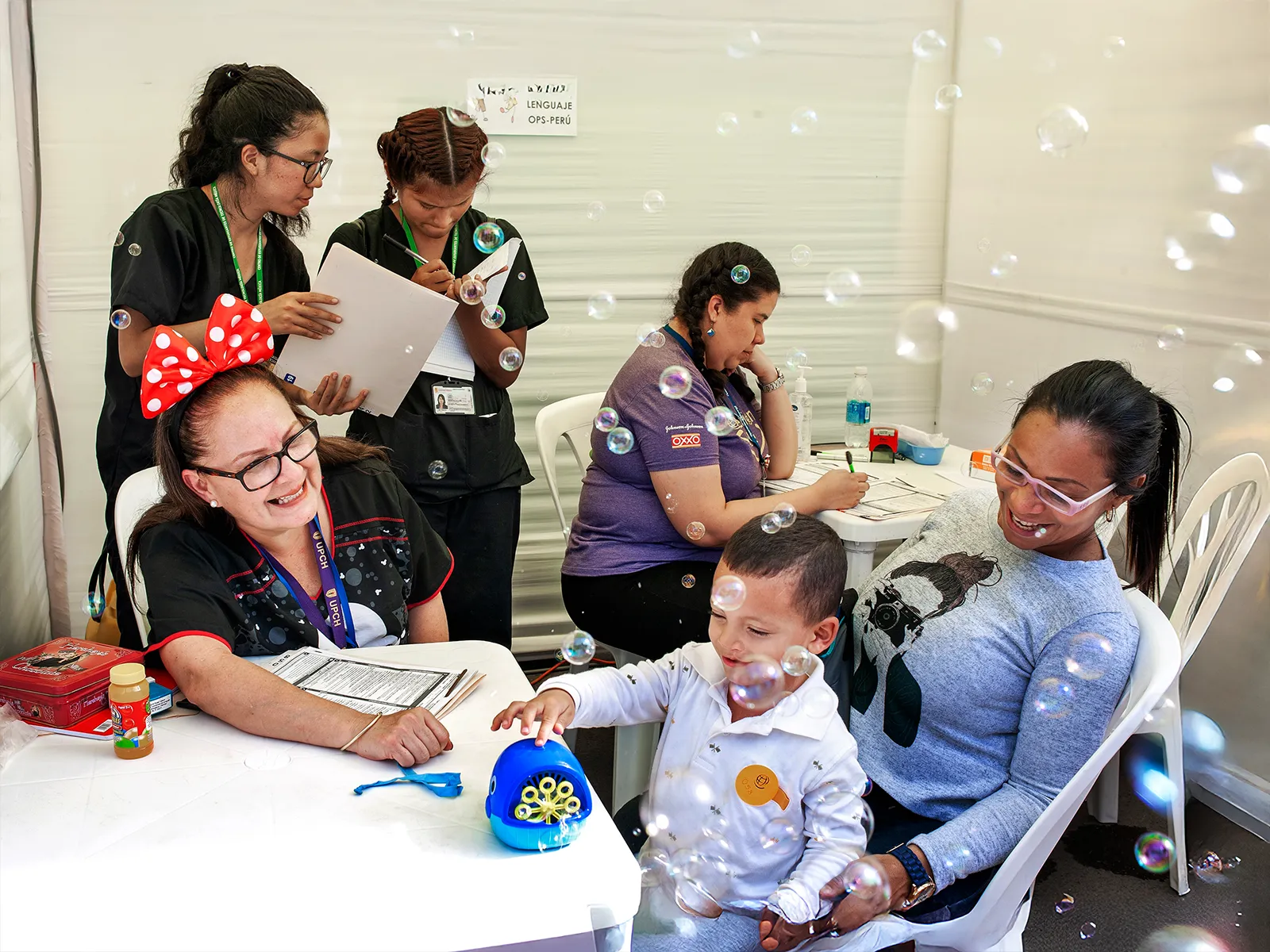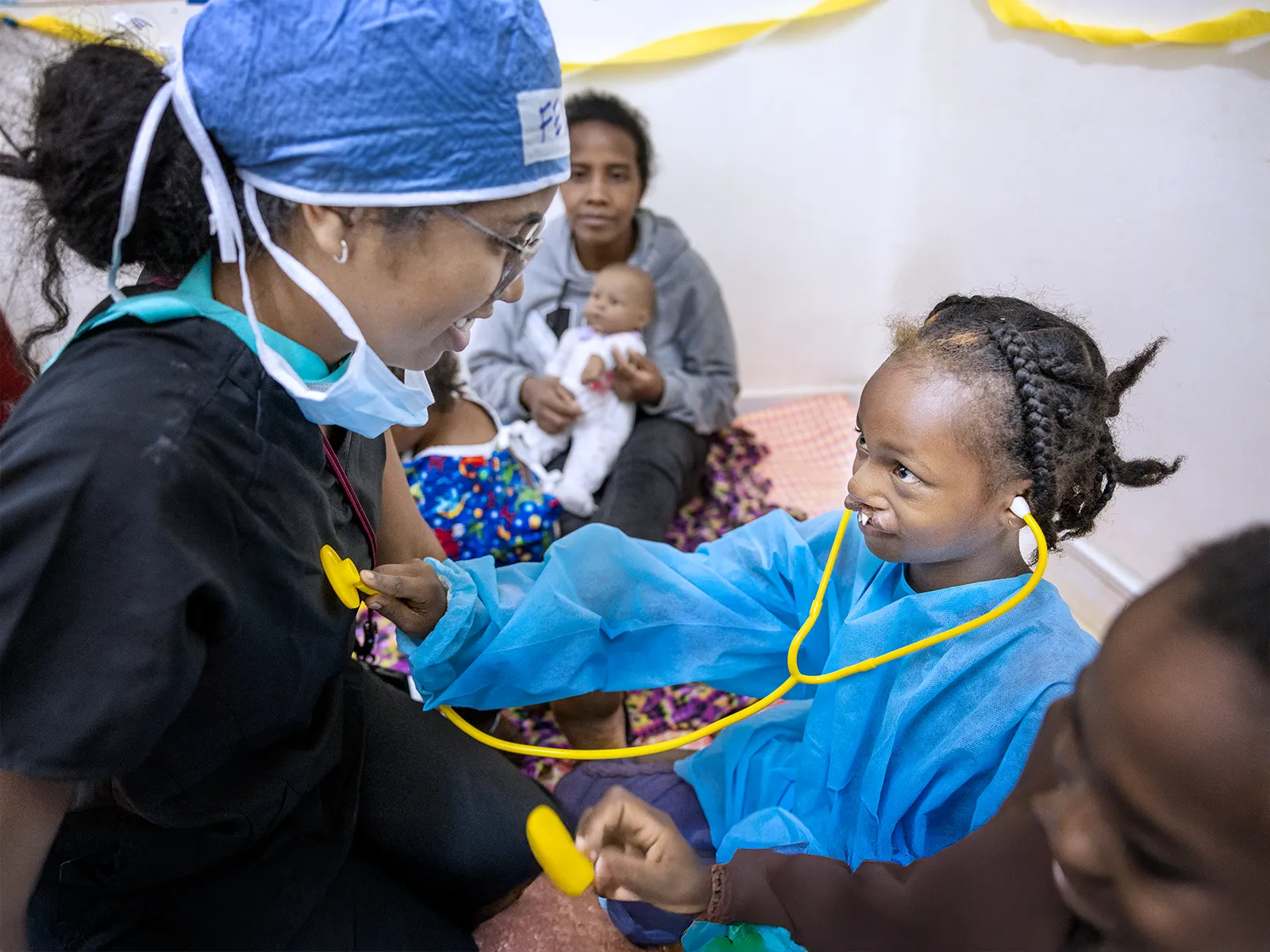Our Impact
Health that Lasts
Operation Smile is committed to providing comprehensive care to ensure the best outcomes for children. Parents trust us to treat their children as our own, and we uphold that trust with the highest standards at every step of their journey.
Lifelong Support for Every Step of the Journey
Our comprehensive care continues as long as a child and their family need us, often until they reach young adulthood.
Our team includes a wide variety of certified medical volunteers that treat the whole child. From pediatricians, nurses, and surgeons to ENT doctors, dentists, orthodontists, speech and hearing specialists, social workers, and psychologists, we provide every aspect of cleft care, at no cost to the families we serve.

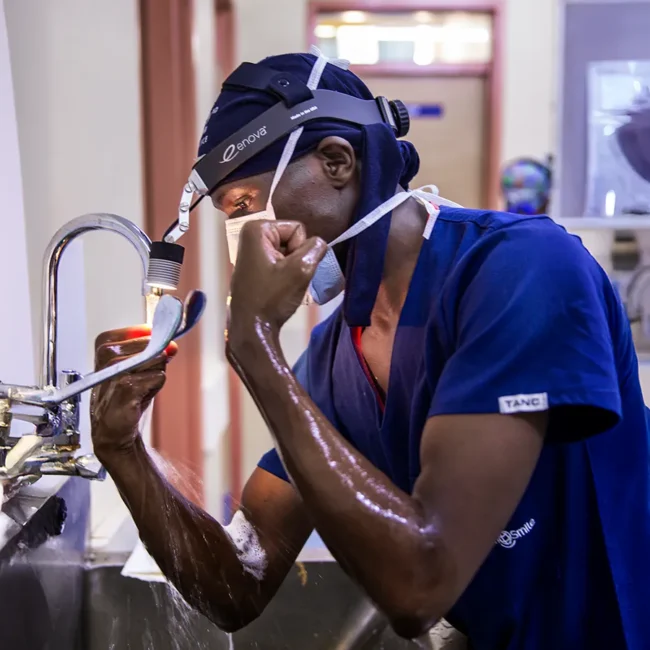
Cleft Surgery
Creating a Life-Changing Milestone
While the journey to a new smile does not start or end with surgery, it is a major milestone for a child born with a cleft condition!
In as little as 45 minutes, a child can receive cleft lip surgery, and in as little as 2 hours, cleft palate surgery. While many children will need additional surgeries as they grow, the impact lasts a lifetime. A mother or father’s “first look” at their child’s new smile is only second to when the child sees their own reflection in the mirror.
These precious lifelong memories are the result of exceptional surgical treatment. We are committed to the Safe, Effective, and Timely (SET) model of care which ensures we provide the right treatment, with the right team, and at the right time, no matter where in the world they reside.
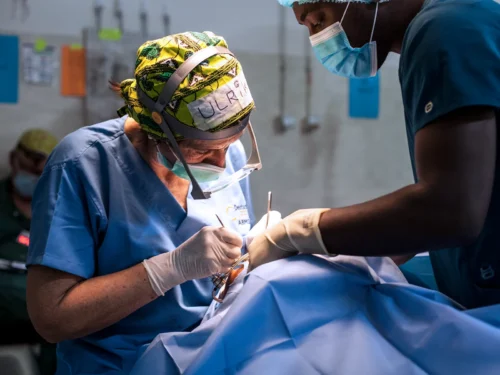
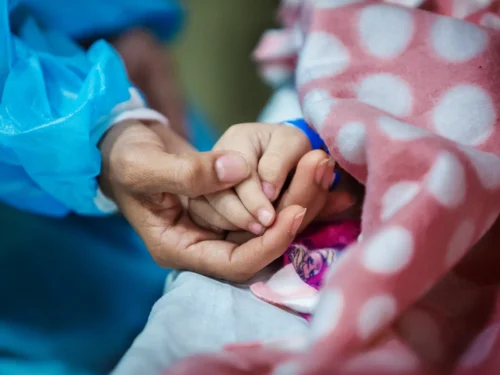
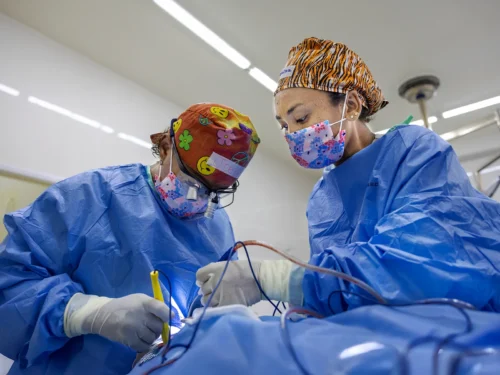
Safe
We hold ourselves accountable to the highest standard of safety procedures, health examinations, equipment, supplies, and monitoring which ensures that no patient is exposed to risk while in our care.
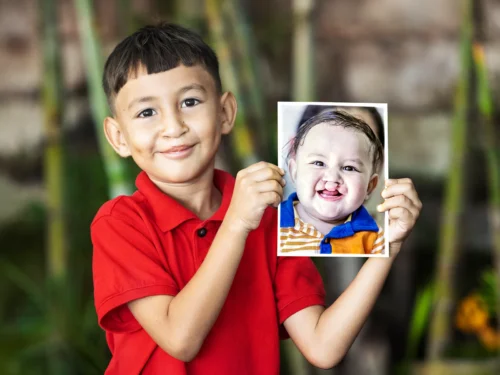
Effective
Operation Smile meets or exceeds global medical standards, guaranteeing outstanding patient outcomes on a world-class level.
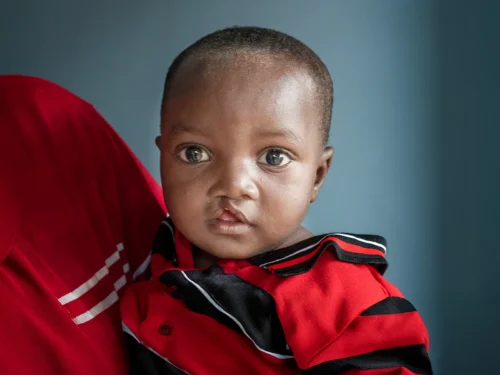
Timely
Patients need cleft surgery as soon as they are healthy and strong enough, which is best done during the baby or toddler stages. We provide the pre-operative care a child needs to meet their first surgical milestone and beyond.
Nutrition
Ensuring Healthy Growth and Development
Operation Smile prioritizes nutritional support to patients both before and after surgery, ensuring their healthy growth and development.
Infants born with cleft conditions often struggle with feeding, putting them at greater risk for malnutrition or even starvation.
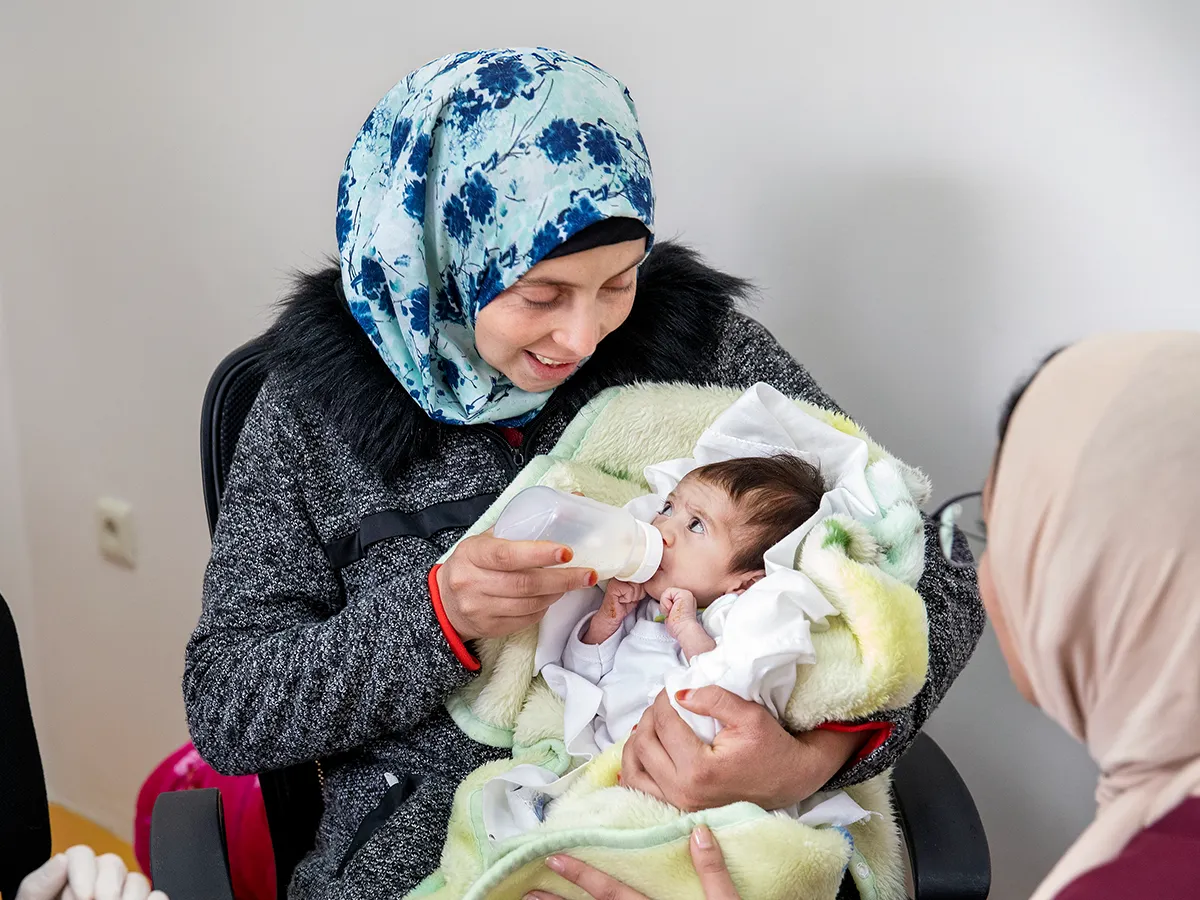
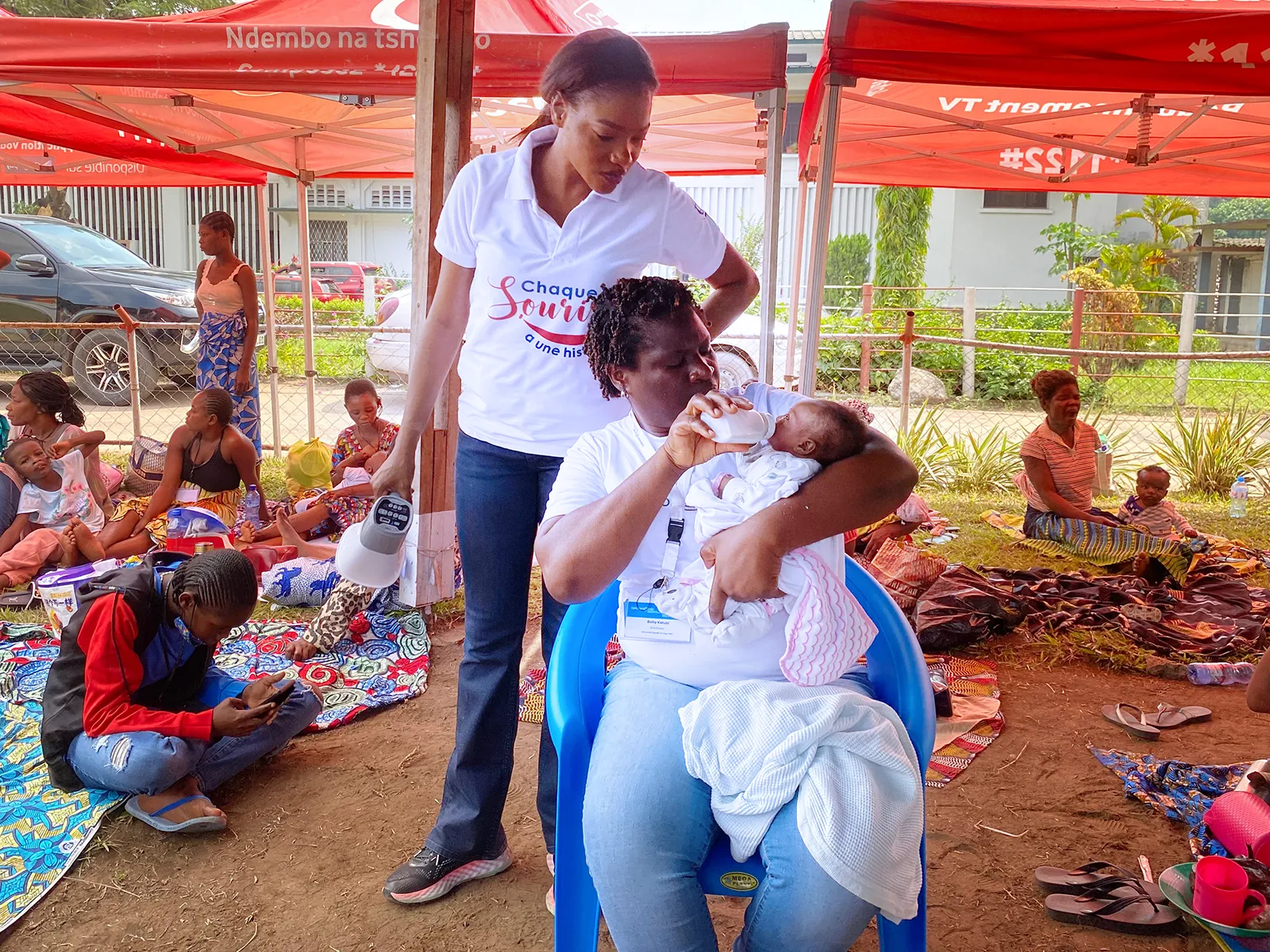
Operation Smile is committed to supporting both breastfeeding and bottle-feeding mothers whose infants have cleft conditions. Breastfeeding an infant born with a cleft can be particularly challenging, so we support them through education like safe breastmilk expression techniques. We also provide specialized cleft drinking bottles, formula options, and ready-to-use therapeutic food (RUTF), a nutrient-rich peanut paste, to aid in the infants’ nutrition and overall well-being. Regular follow-ups to monitor growth are provided, like all of our services, free-of-charge to the family.
Operation Smile dentists also develop temporary solutions until surgery is possible, like creating custom feeding plates from a mold of a patient’s palate. This closes the gap caused by a cleft lip or palate and allows an infant to latch and feed. Molded devices like this can be created in 1 hour, providing emergency intervention to infants facing starvation.
Oral Health
Providing Specialized Dental Care
Our team of oral health volunteers offers comprehensive care to both surgical and non-surgical patients.
Their services encompass a range of treatments, from extractions to the creation of dental prosthetics and other techniques aimed at enhancing oral function, speech, and the smiles of our patients. Alongside these interventions, our volunteers are dedicated to educating patients and their families on preventive measures and home care practices throughout the program.
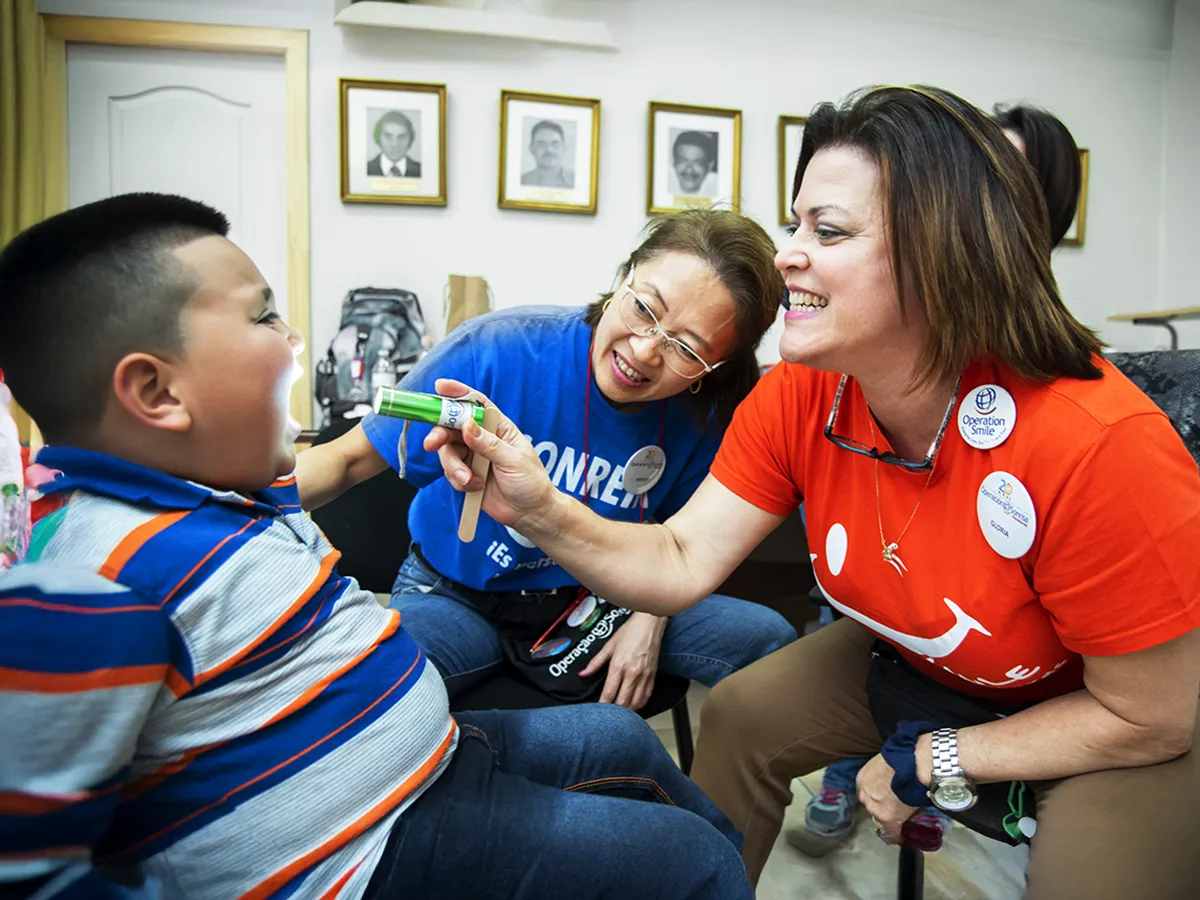
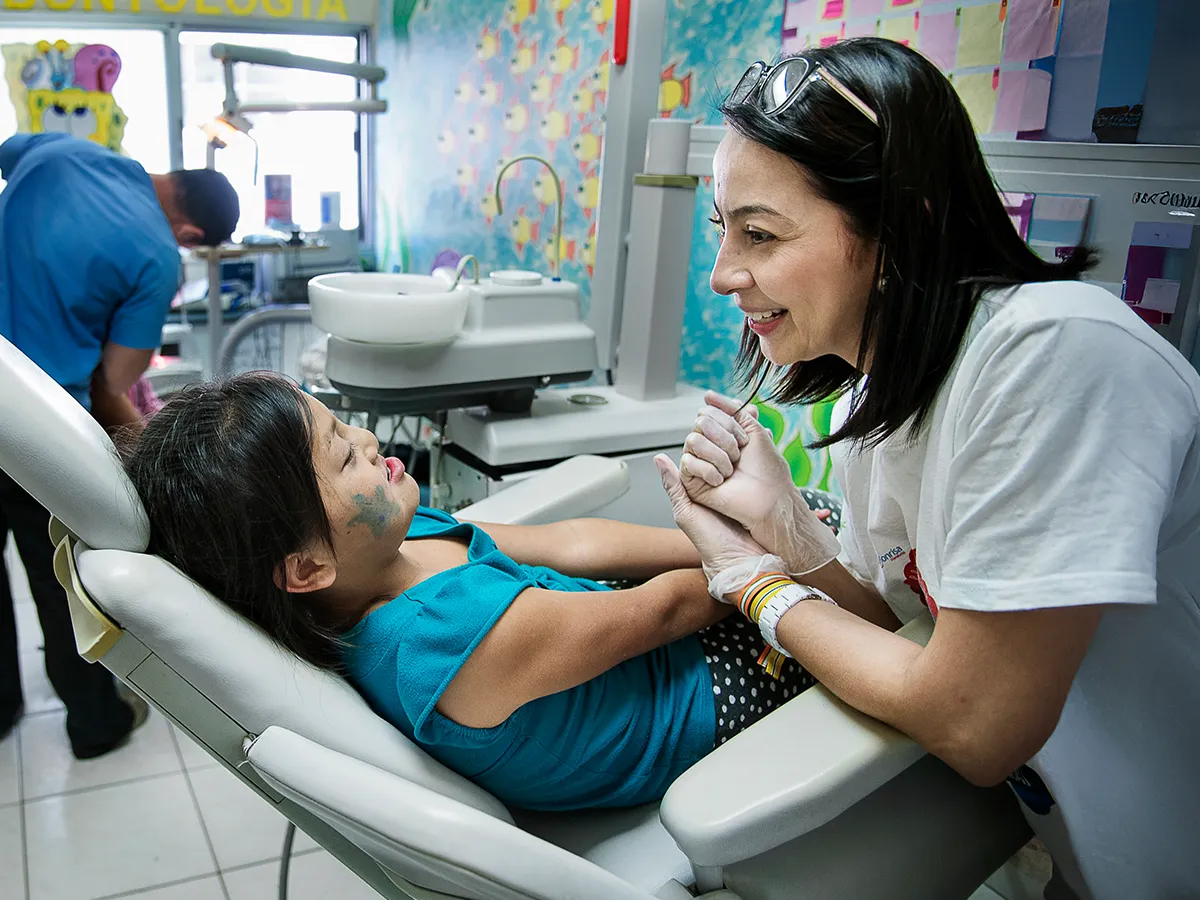
Children born with cleft conditions often experience unique dental differences that require specialized attention and care. These differences can include missing, extra, misshapen, or displaced teeth, as well as issues with dental alignment and the position of the tongue. It not only affects the aesthetics of the smile but also impacts speech development, oral function, and overall oral health. Understanding and addressing these dental differences are crucial aspects of comprehensive care for individuals with cleft lip and palate.
Speech therapy & audiology
Building Speech Confidence
As a child grows and begins to speak, speech therapists help patients develop more language skills and speak more clearly.
Approximately 50% of children born with a cleft palate require speech support. Speech therapists provide patients with palate-strengthening exercises before surgery that help improve the procedure’s outcome.
Speech therapy is not only critical, but Operation Smile also makes it fun! Through songs and stories, children can exercise their abilities without getting frustrated. Additionally, due to a cleft’s potential impact on the middle ear, audiologists address any hearing difficulties with a child and their family.
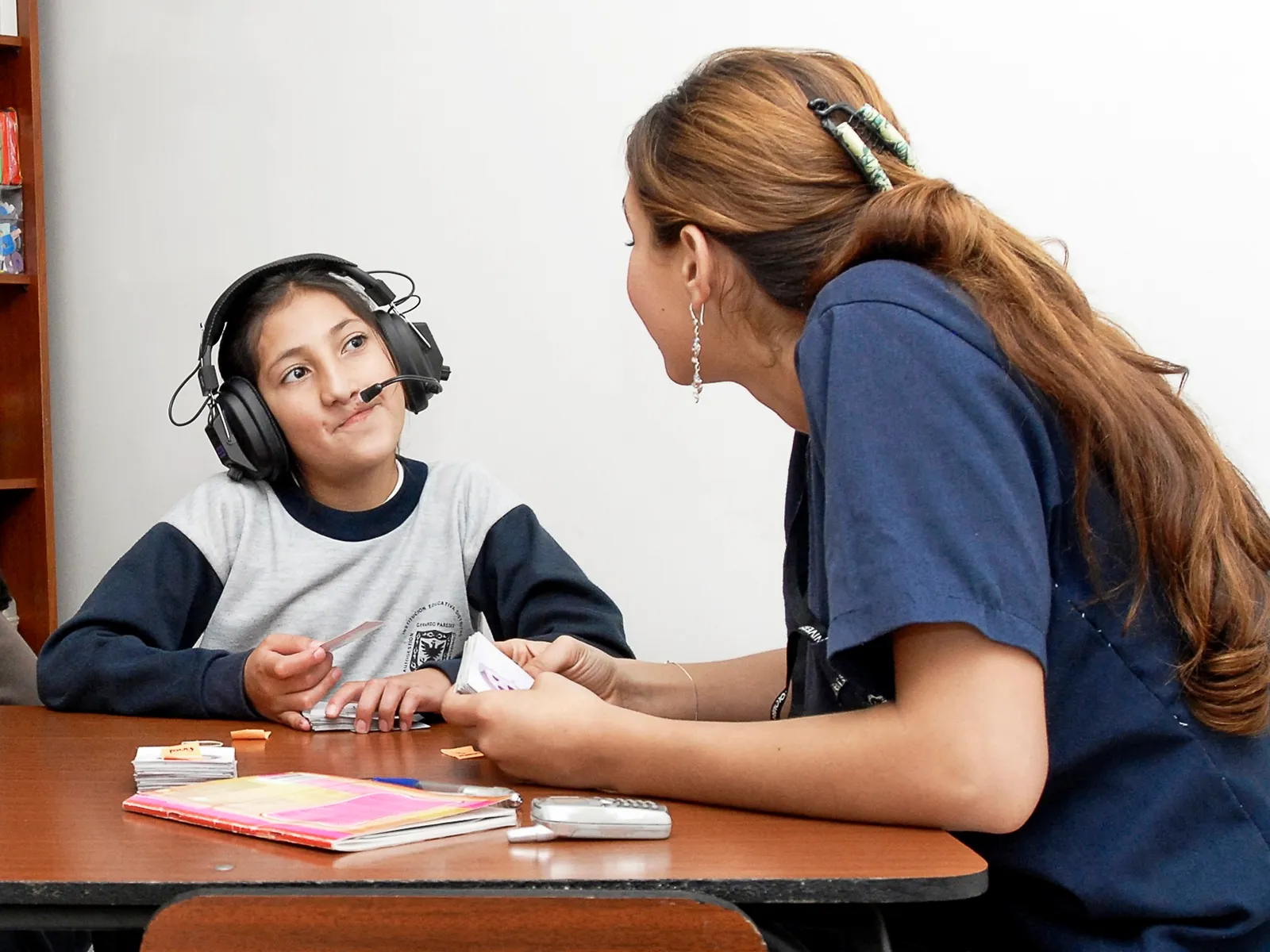
Training & Education
Expanding Global Care
Operation Smile has made the ambitious goal to treat a million more patients in the next decade by creating sustainable solutions.
Every 3 minutes another child is born with a cleft condition somewhere in the world. To meet our goal of helping more children in more places closer to where they live, we train professionals on the ground, building high quality local capability and ensuring that what we do lasts. We act as a force multiplier, inspiring volunteers, governments, corporations, and international aid organizations to join us.
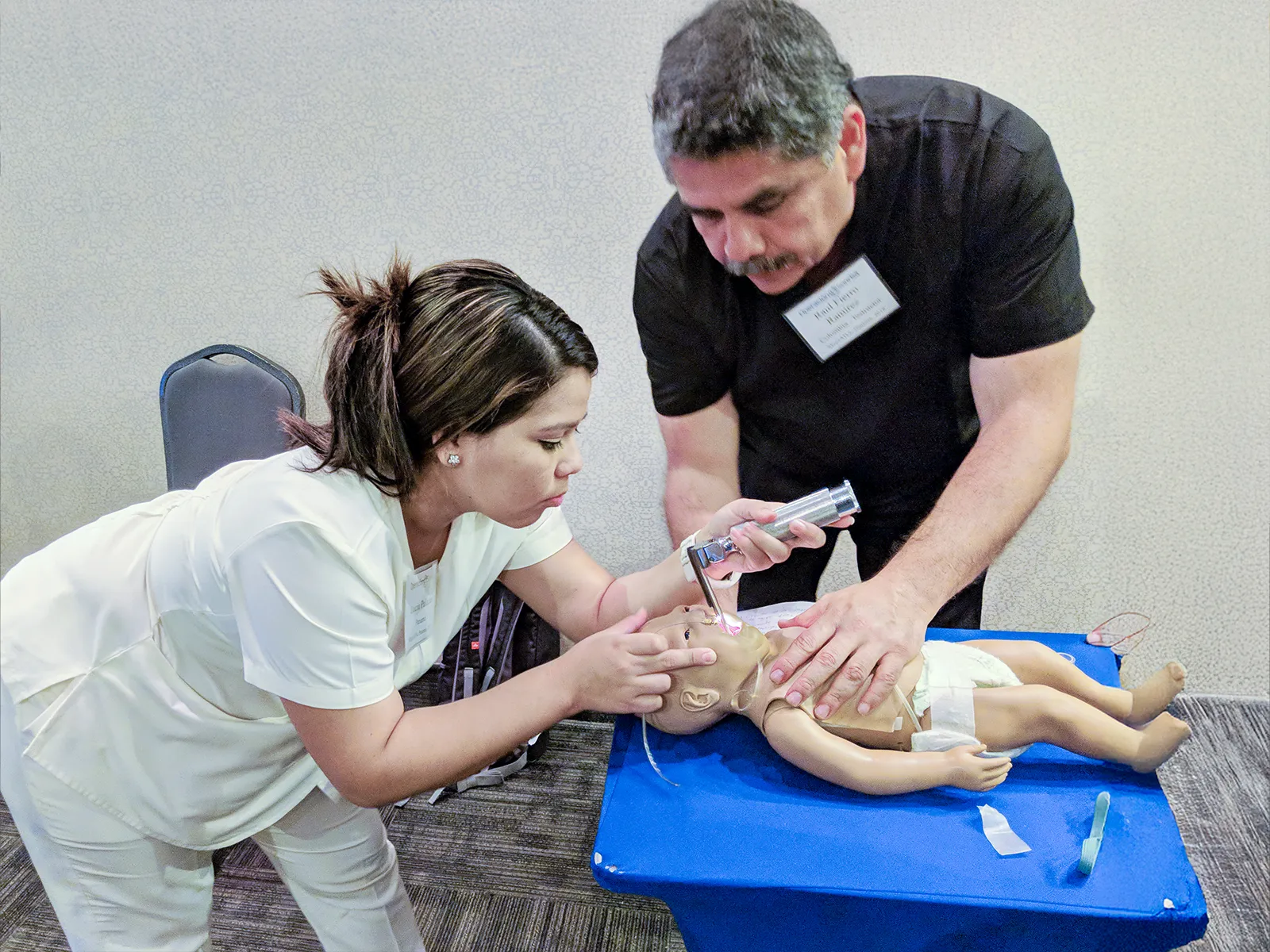
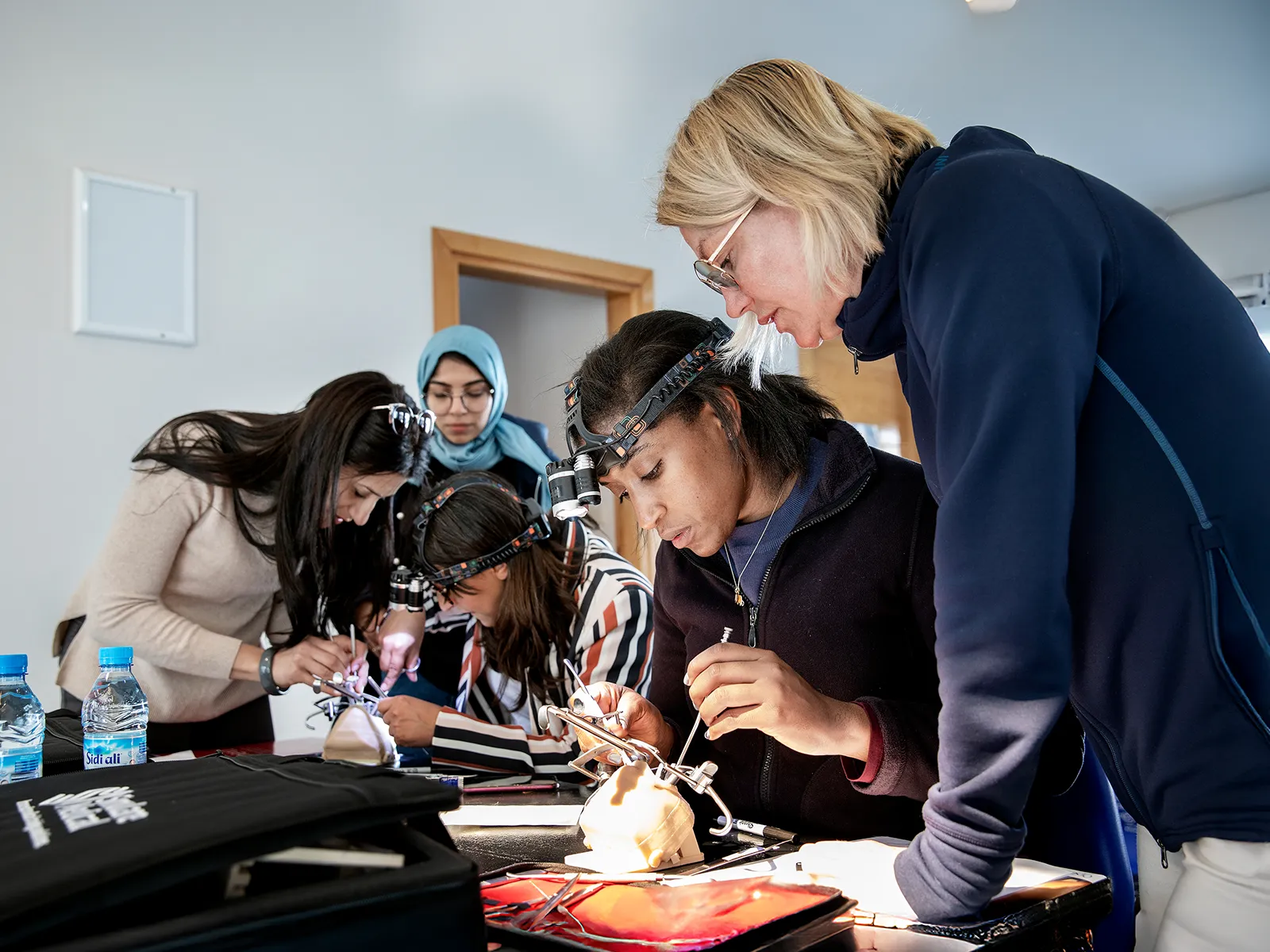
An estimated 5 million individuals, around the globe, are living with untreated cleft conditions. Our education and training signature initiatives were born out of this staggering statistic. Through these programs, we are empowering women in medicine, offering unparalleled access to mentorship, creating training and fellowship opportunities, providing healthcare workers with open-source training tools to increase their skills and knowledge, and investing in healthcare infrastructure in places of need around the world – all leading to the ultimate goal of helping more children.
Signature Initiatives
Operation Smile Academy
Together with long-standing volunteers, international clinicians and renowned specialists, Operation Smile Academy (OSA) offers a network of hard-to-replicate educational content, accessible from anywhere. OSA engages learners on every skill level across a variety of specialties including surgery, anesthesia, nursing, nutrition, oral health, speech therapy, and psychosocial support. This interdisciplinary approach to training promotes a global understanding of team-based care among our providers, guaranteeing each child receives the absolute best treatment possible.
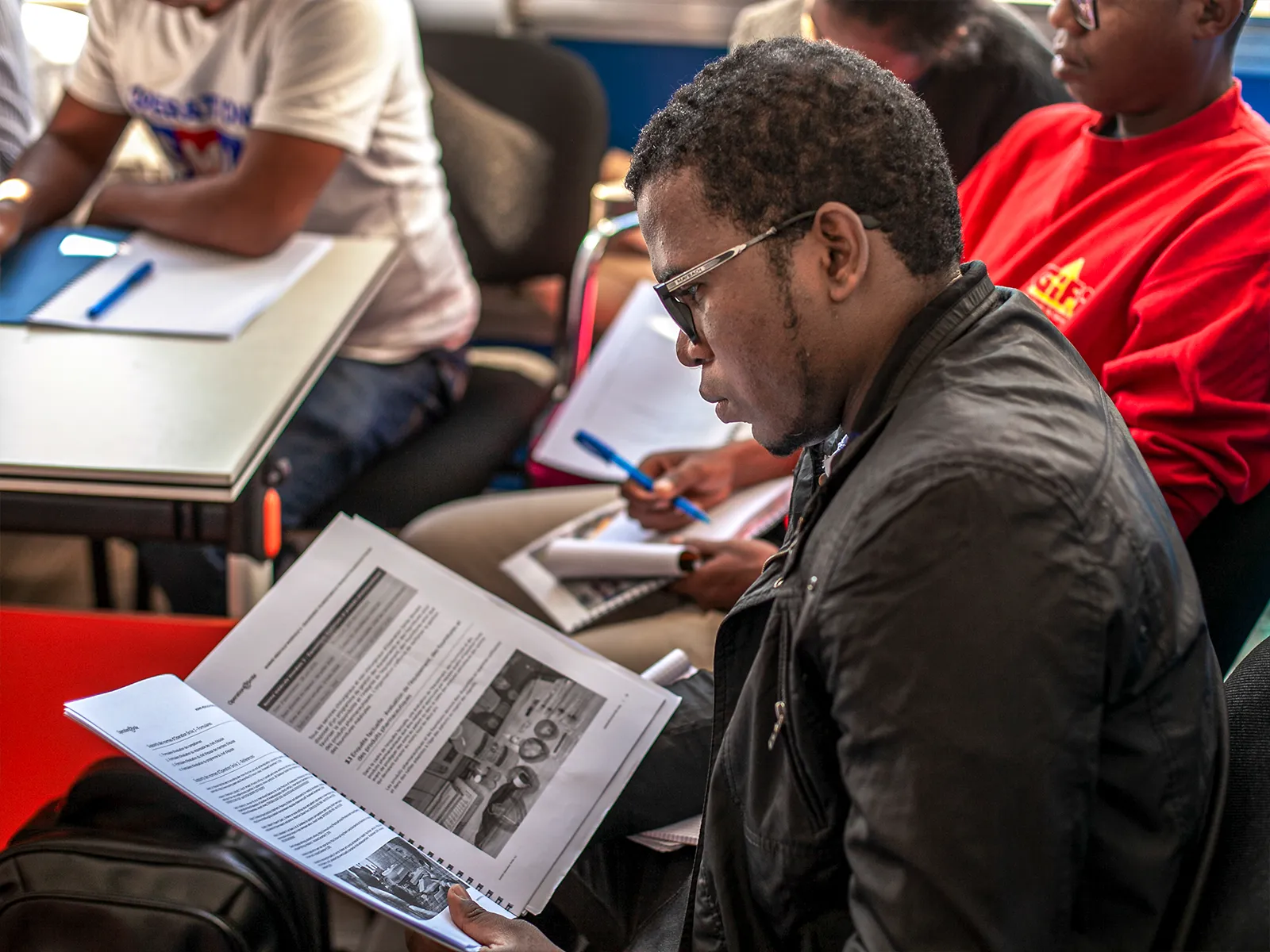
Comprehensive Care Conferences
Bringing together volunteers and program staff from dozens of different countries, our conferences make it possible for professionals to discuss strategies in their fields, learn different mechanisms and techniques, and enhance their skills to better serve our patients.
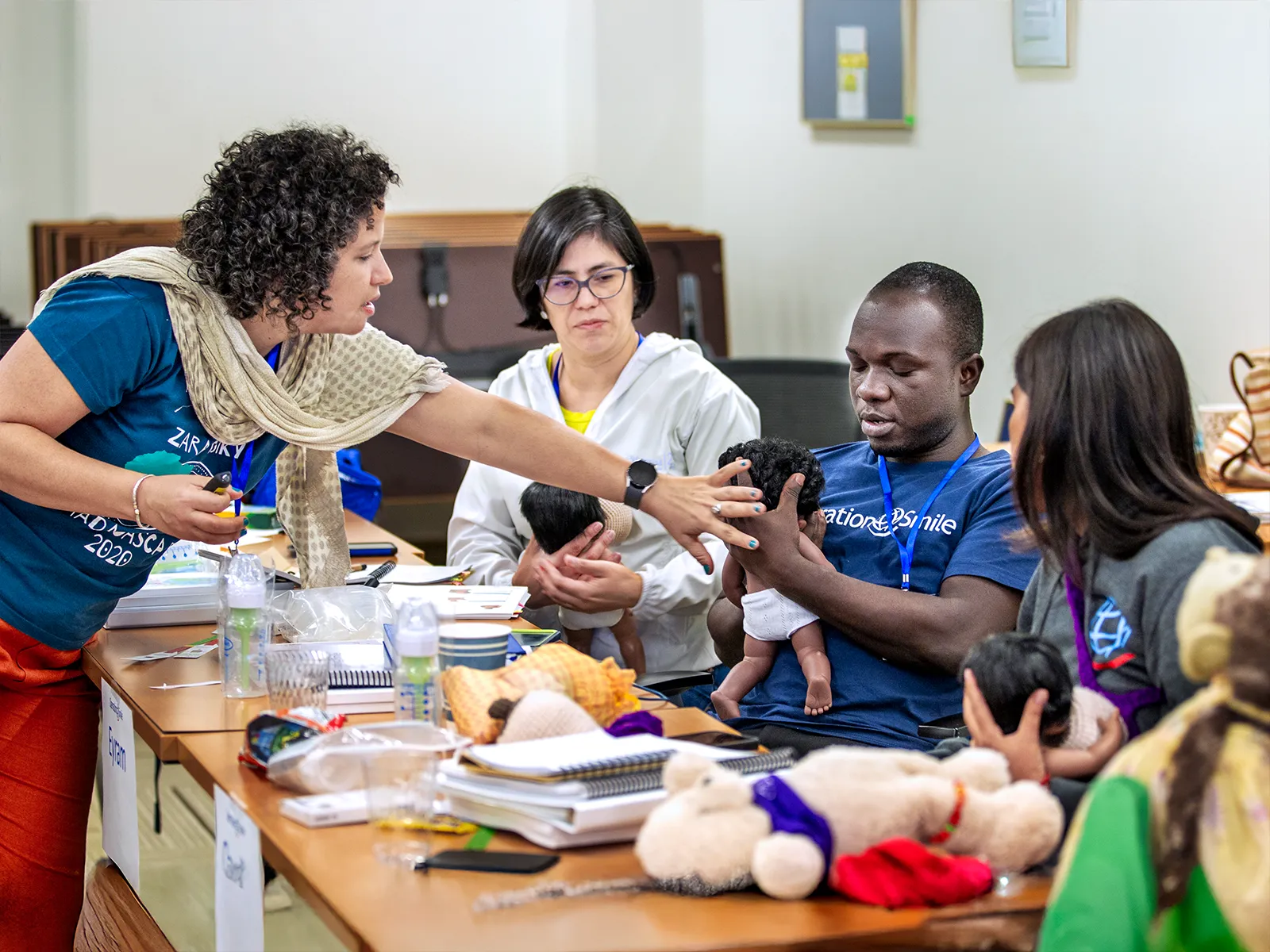
Women in Medicine
Providing educational pathways and career development for women in low- and middle-income countries creates a lasting impact in health care and increases access for children with cleft and other surgical conditions. Our Women in Medicine initiative works to educate women on advanced medical practices, empower them to become leaders, expand opportunities for female health care workers, and elevate cleft surgery and comprehensive care.
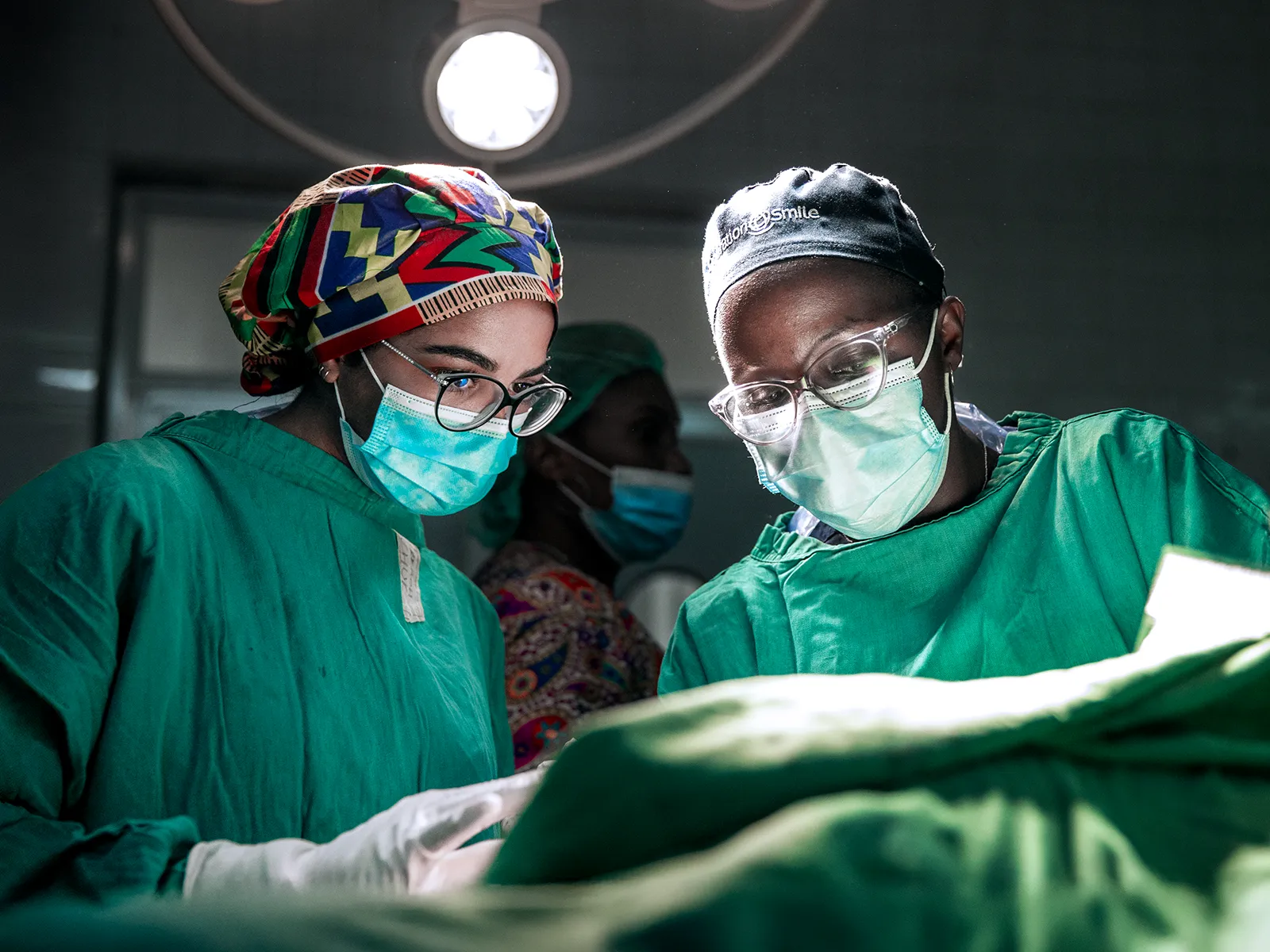
Cleft Surgery Training Program
Operation Smile’s Cleft Competency Pathway is a global initiative tackling surgical inequity and the global surgical burden. This program trains medical professionals in the ‘big five’ specialties essential for safe cleft surgery: Surgeons, Anesthesiologists, Pediatricians, Nurses, and Biomedical Engineers. Trainees can join at their current skill level and advance through virtual training, the Operation Smile Academy, and hands-on clinical programs. By fostering core competencies, the pathway empowers teams to deliver comprehensive cleft care worldwide.

Where We Work
Operation Smile’s 6,000+ volunteers work in over 37 low- and middle-income countries globally, providing year-round comprehensive cleft treatment through our care centres and local medical facilities.
Caring Canadians like you fuel our work providing new smiles and bright futures to children, regardless of where they are born. Thank you!

